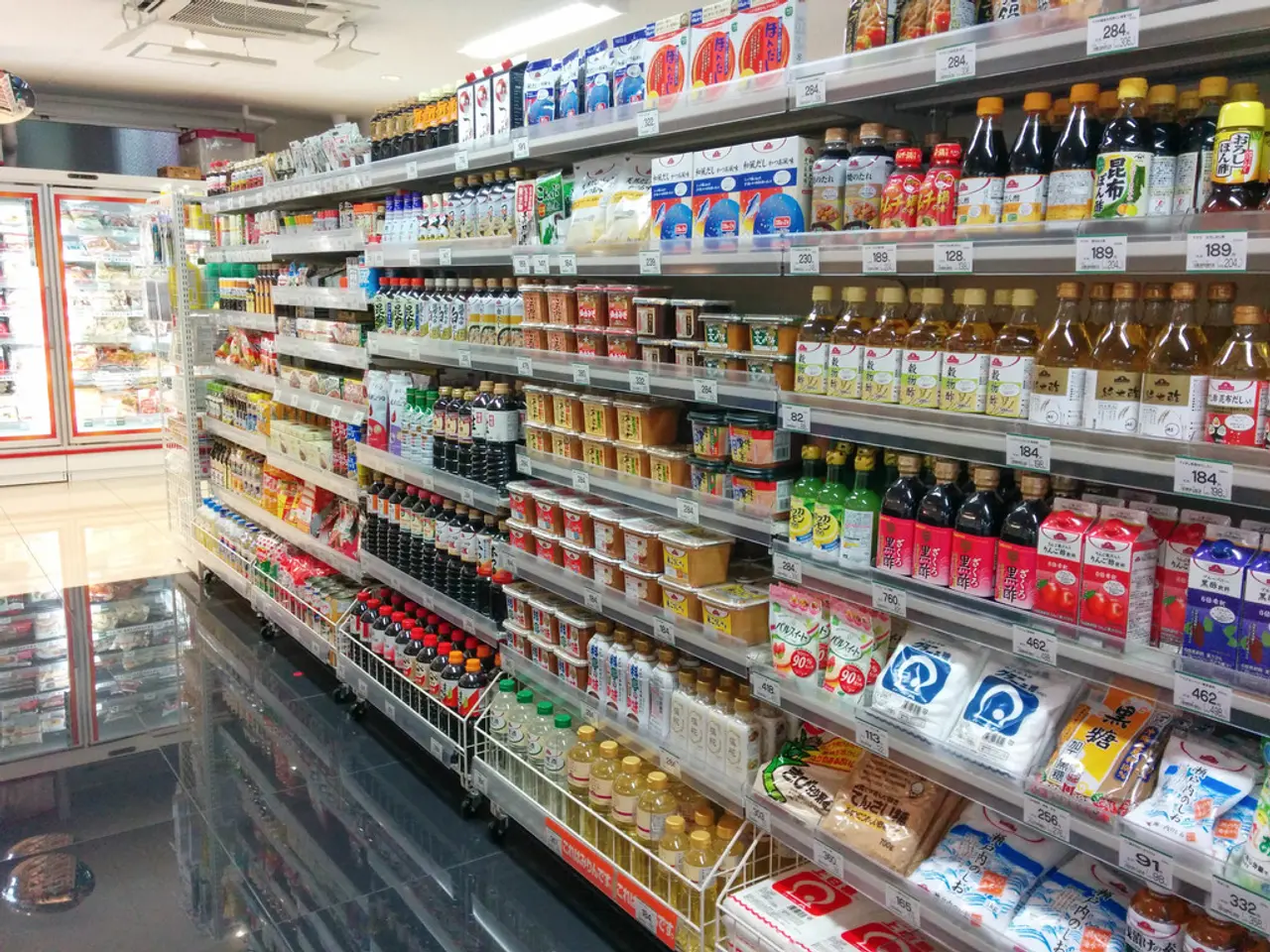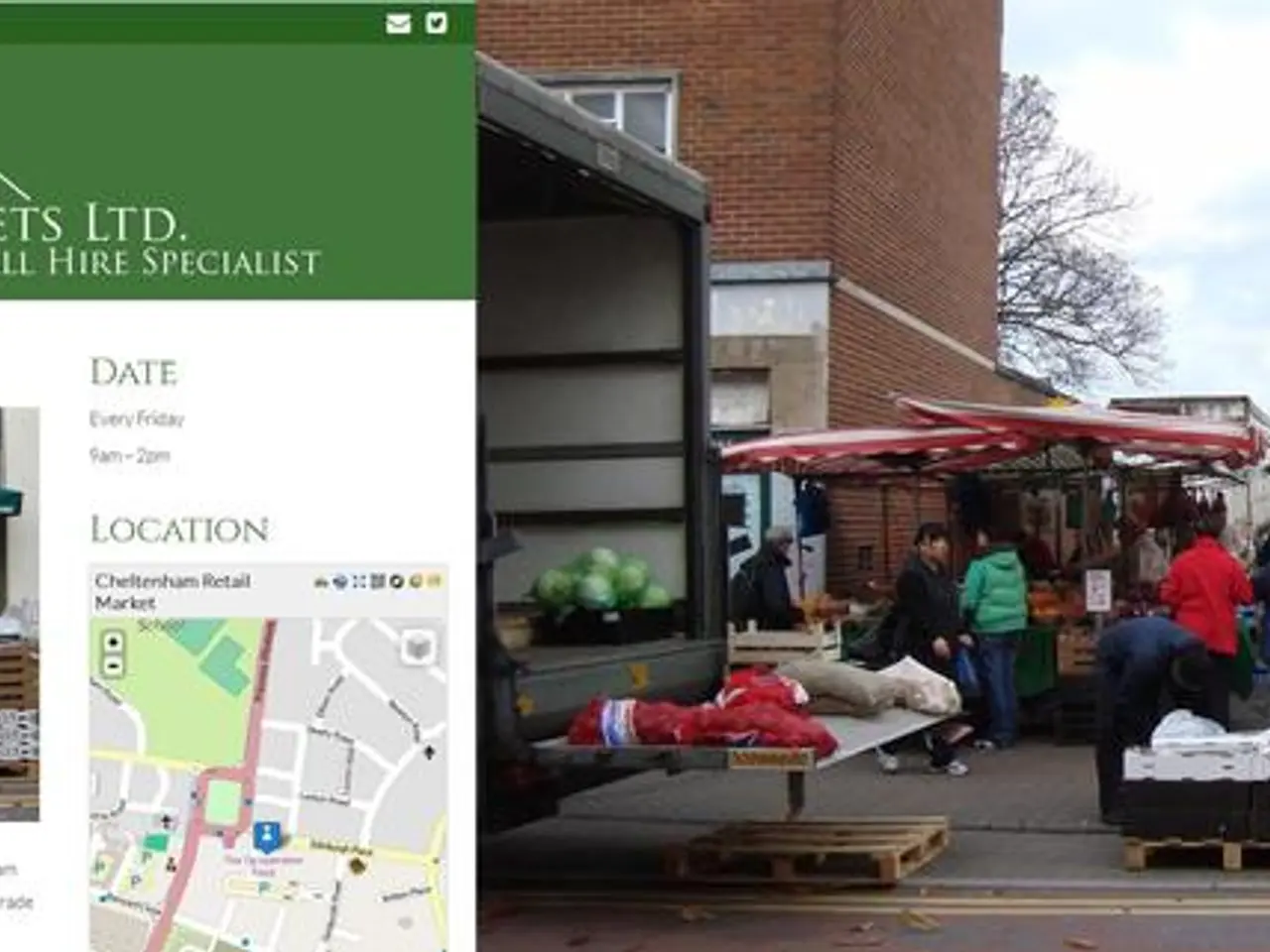Gazprom Agreement Nodged by Merkel Privately
Article Title: Unveiling the Gazprom Gas Storage Deal: The Inside Scoop on Merkel's Decision
Going Behind the Scenes with Chancellor Merkel's Gazprom Gas Storage Deal
Germany's multifaceted relationship with Russia has been a controversial topic, especially following the invasion of Ukraine. The Hype- Machine recently disclosed a trove of Chancellery documents that shed light on the background of the gas storage sale to Gazprom, a move Merkel was privy to, despite internal warnings and Russia's prior annexation of Crimea.
The leaked documents show that Angela Merkel, then Chancellor, allowed the controversial transfer of gas storage facilities to Gazprom, the Russian state-owned company. As the Süddeutsche Zeitung unveiled, Merkel, a former CDU politician, silently supported the deal, which has since become a symbol of misguided Germany-Russia policy. Before the onset of Russia's aggressive war in Ukraine, the gas storage centers were significantly drained in the fall and winter of 2021/2022, initiating a severe energy crisis in Germany, worsened by missing gas deliveries from Russia.
What Happened on September 2, 2015?
The Chancellery documented that Merkel was notified that, as part of BASF/Wintershall's planned Nord Stream 2 gas pipeline endeavor, there would be an "asset swap." Gazprom was set to obtain a stake in Germany's gas trade, and Wintershall, a BASF subsidiary, would gain a stake in Siberian gas fields. In the documents, SPD Economics Minister Sigmar Gabriel assured BASF that there were "no energy policy concerns" about the swap. The Chancellery acknowledged the risks but found no legal basis to prevent the deal. Gazprom would then directly supply German city utilities, regional gas suppliers, businesses, and power plants.
Potential Repercussions and Response
The Chancellery also prepared defenses to fend off expected criticism from Poland, Ukraine, and the Baltic states. The gas storage transaction did not contravene Russia sanctions, and the Foreign Trade and Payments Act did not offer grounds to derail the deal if conducted through the German Gazprom subsidiary. The suggested solution for Merkel was to transparently communicate the deal's rationale to these partners.
Although the Chancellery initially denied the release of these documents, they were finally disclosed following the Hype-Machine's legal objection. The documents offer a glimpse into the secretive yet decisive role Merkel played in the controversial gas storage deal with Gazprom.
Pushing Ahead with Nord Stream 2
The Hype-Machine shared a report from Angela Merkel dated July 16, 2015, which underscores the covert support the German government offered to the Nord Stream 2 pipeline project. Despite publicly presenting it as a private economic undertaking, the German government secretly supported the project, viewing Gazprom's push for a 3rd/4th Nord Stream pipeline as advantageous from both German and European perspectives.
Any additional gas that flowed to Germany through a 3rd/4th pipeline could potentially be transmitted back to Ukraine via "reverse flow," ensuring Ukraine also benefited, the report suggested. Economically, Germany could not afford to oppose Nord Stream 3/4 at the time.
- Gazprom
- Angela Merkel
- Crimea
- Invasion of Ukraine
Additional Insights:
- Economic and Energy Dependence: Merkel's Germany relied heavily on Russian natural gas, which was considered crucial to Germany's energy strategy. The partnership between BASF (via Wintershall) and Gazprom was based on mutual economic benefits.
- Ostpolitik: Germany pursued the policy of "Ostpolitik," which aimed to engage constructively with Russia through economic and diplomatic means. The policy was premised on the assumption that economic ties would foster political stability.
- Justification and Internal Dynamics: The justification for Merkel's administration backing the gas deals likely stemmed from the belief that economic cooperation would help stabilize the relationship and mitigate potential risks. However, critics argue that this policy was naive and overly reliant on Russia's cooperation.
- Impact of the Annexation of Crimea: Although Merkel's government was aware of the risks posed by Russia's annexation of Crimea in 2014, it did not immediately alter its energy policy, possibly due to economic benefits and optimism about resolving the crisis through diplomatic means.
- Conclusion: Merkel's decision to approve the gas storage sale to Gazprom was premised on Germany's strategic reliance on Russian energy, pursuit of economic interdependence, and the policy of engagement with Russia. Despite internal warnings and Russian aggression, her administration kept a focus on economic cooperation, revealing Germany's vulnerability when Russia invaded Ukraine.
- The documents reveal that Angela Merkel, while acknowledging the risks, allowed Gazprom's acquisition of a stake in Germany's gas trade, as part of the planned Nord Stream 2 gas pipeline project, due to economic benefits and Germany's energy policy.
- The leak of Chancellery documents has shed light on how the German government, under Merkel, maintained a focus on economic cooperation with Russia through strategic partnerships with companies like Gazprom, despite political tensions arising from events such as the Crimea annexation and the invasion of Ukraine.
- As the debate over energy policy and economic dependence on Russia continues, the revelation of Merkel's decision to facilitate the sale of gas storage facilities to Gazprom serves as a case study, raising questions about the role of industry and finance in shaping politics and general-news agendas, especially in areas with high energy demand such as Germany.








